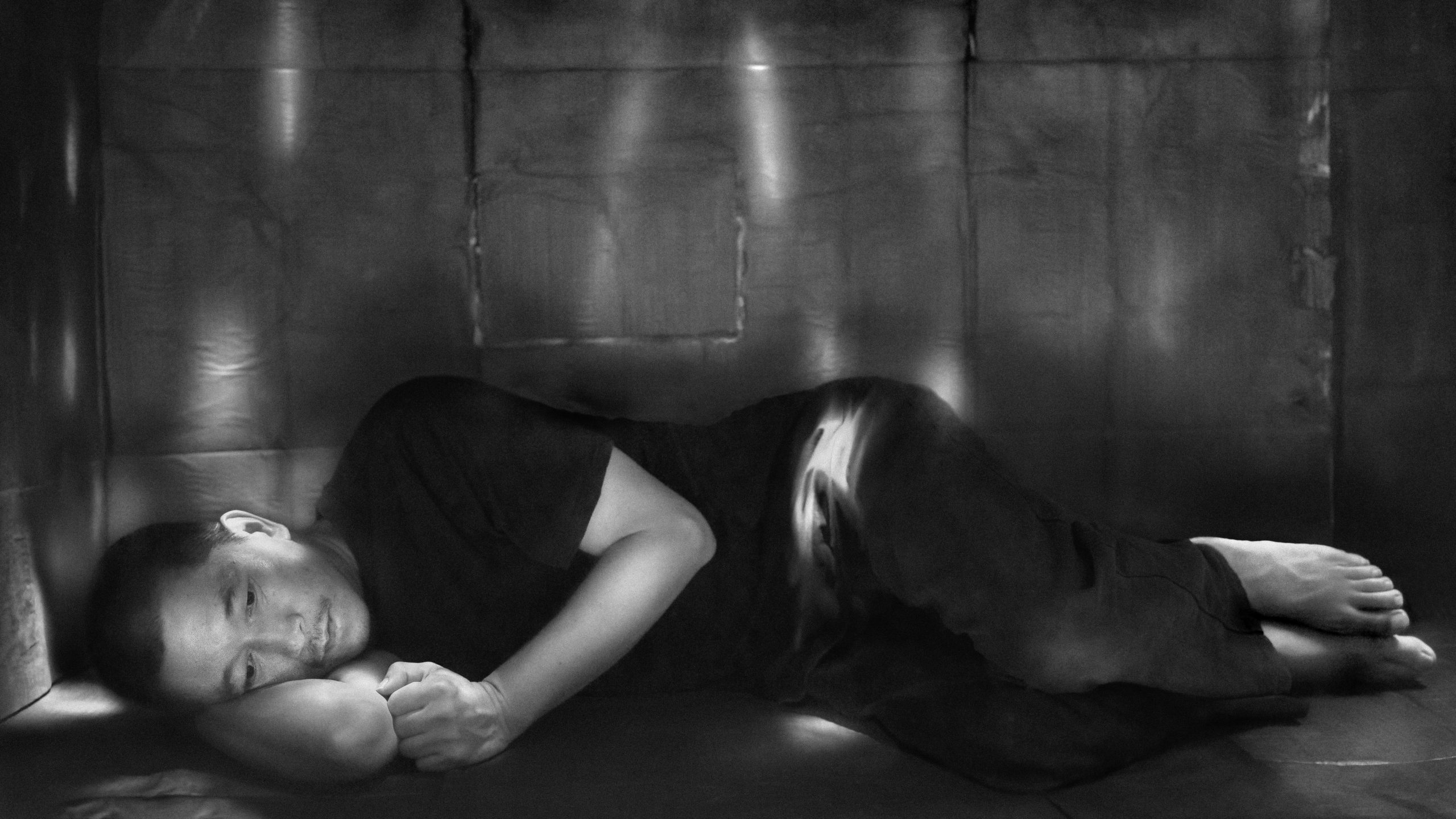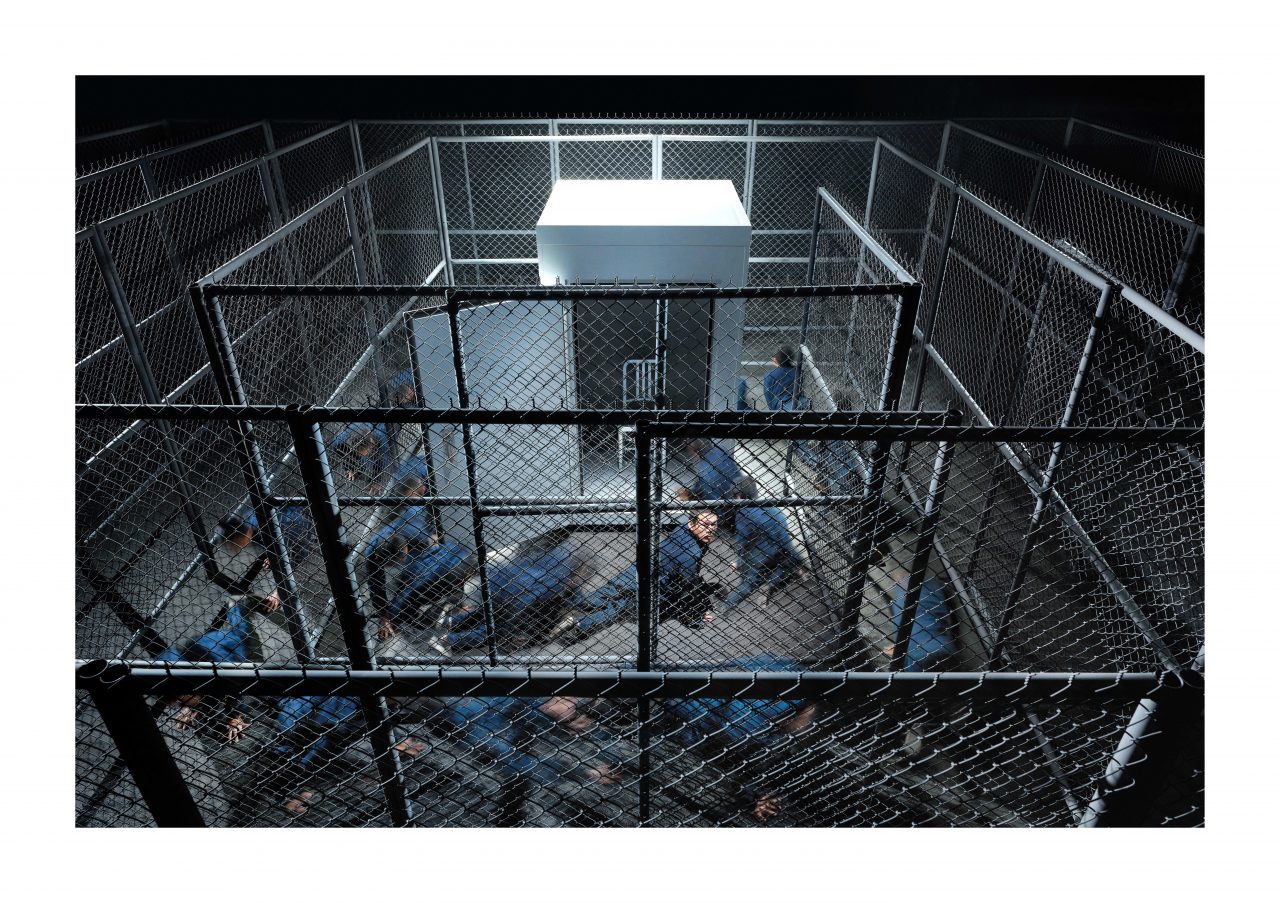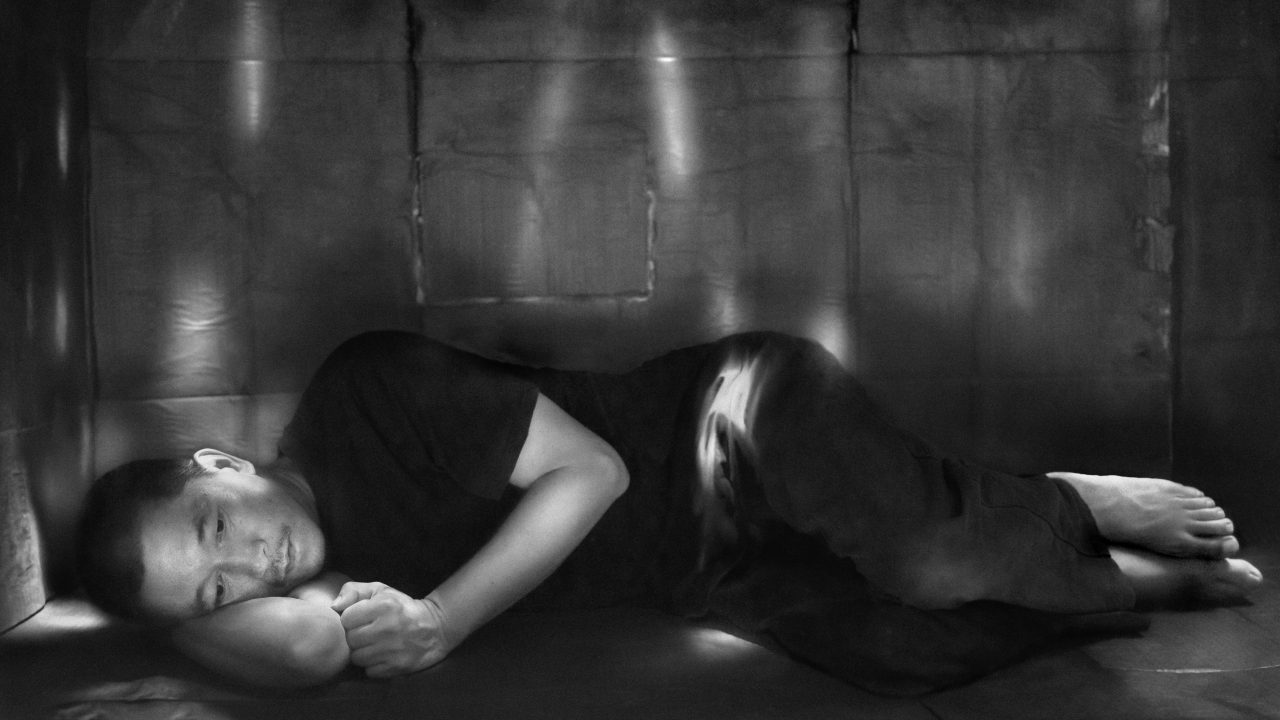陈界仁:以幻解幻(III)
线上展厅于北京时间
2023年9月23日中午12时启动,
开放至2023年10月22日上午11时59分。

对陈界仁而言,面对帝国的全域式操控技术,更应该重思人类社会中的各种根本性问题,其中之一即是关于何谓“幻象”的课题,对此,陈界仁援引佛法中的幻相(māyā)观解构帝国制造的幻象困境。佛法中谈论的幻相主要指宇宙中的所有事物都处于不断流变的状态,是所有事物为何汇聚、形成、存在、衰败与消逝的原因,了解这个道理,才了解所有事物都来自相互依存与相互作用的关系,佛陀称此认识论为真如(Tathatā)。佛陀提出此辩证观点最主要的核心关怀,即是为了打破婆罗门阶级通过庞大的神话叙事所建构的种姓制度。换言之,佛陀藉由指出没有什么事物具有绝对不变的本质,因此所有的众生(包含所有物种)都是平等的,更不存在血缘、种族与文化等的贵贱之分。
陈界仁之所以招唤佛法中的幻相观,即以追求众生平等的未来观,解构帝国将新殖民主义/新种姓制度自然化的未来观。或者说,就文化与艺术生产而言,关键不在其内容为真实或虚构与使用什么样的媒材,而在于其是否在新殖民主义/新种姓制度下,指出通向平等社会的各种途径。
关于陈界仁
陈界仁,1960年生于台湾桃园,目前生活和工作于台北市。陈界仁的创作媒材虽大都以录影装置为主,但其从拍摄影片的生产过程开始,即对合作者、参与者的组构形式,不断进行各种实验与实践,使其创作同时还具有提出另一种社会想像的行动性特质。
在冷战/戒严时期,陈界仁曾以游击式的行为艺术干扰当时的戒严体制,1987 年解除戒严后, 曾停止创作八年。1996年重新恢复创作后,开始和失业劳工、临时工、移工、外籍配偶、无业青年、社会运动者等进行合作,并通过占据资方厂房、运用废弃物搭建虚构场景等行动,对已被新自由主义层层遮蔽的人民历史与当代现实,提出另一种“再-想像”、“再-叙事”、 “再-书写”与“再-连结”的拍摄计划。
2010年起,陈界仁更积极关注在公司王国的“全域式操控技术”下,全球越来越多人沦为泛临时工与丧失自身存在感的现实,他将这个全球普遍现象,简称为“全球监禁、在地流放”,并试图通过源于佛法的“以欲化欲”与“以幻解幻”的思辨路径,借此思考如何质变“全域式操控技术”的可能性。
陈界仁:以幻解幻(III)
线上展厅于北京时间
2023年9月23日中午12时启动,
开放至2023年10月22日上午11时59分。

对陈界仁而言,面对帝国的全域式操控技术,更应该重思人类社会中的各种根本性问题,其中之一即是关于何谓“幻象”的课题,对此,陈界仁援引佛法中的幻相(māyā)观解构帝国制造的幻象困境。佛法中谈论的幻相主要指宇宙中的所有事物都处于不断流变的状态,是所有事物为何汇聚、形成、存在、衰败与消逝的原因,了解这个道理,才了解所有事物都来自相互依存与相互作用的关系,佛陀称此认识论为真如(Tathatā)。佛陀提出此辩证观点最主要的核心关怀,即是为了打破婆罗门阶级通过庞大的神话叙事所建构的种姓制度。换言之,佛陀藉由指出没有什么事物具有绝对不变的本质,因此所有的众生(包含所有物种)都是平等的,更不存在血缘、种族与文化等的贵贱之分。
陈界仁之所以招唤佛法中的幻相观,即以追求众生平等的未来观,解构帝国将新殖民主义/新种姓制度自然化的未来观。或者说,就文化与艺术生产而言,关键不在其内容为真实或虚构与使用什么样的媒材,而在于其是否在新殖民主义/新种姓制度下,指出通向平等社会的各种途径。
关于陈界仁
陈界仁,1960年生于台湾桃园,目前生活和工作于台北市。陈界仁的创作媒材虽大都以录影装置为主,但其从拍摄影片的生产过程开始,即对合作者、参与者的组构形式,不断进行各种实验与实践,使其创作同时还具有提出另一种社会想像的行动性特质。
在冷战/戒严时期,陈界仁曾以游击式的行为艺术干扰当时的戒严体制,1987 年解除戒严后, 曾停止创作八年。1996年重新恢复创作后,开始和失业劳工、临时工、移工、外籍配偶、无业青年、社会运动者等进行合作,并通过占据资方厂房、运用废弃物搭建虚构场景等行动,对已被新自由主义层层遮蔽的人民历史与当代现实,提出另一种“再-想像”、“再-叙事”、 “再-书写”与“再-连结”的拍摄计划。
2010年起,陈界仁更积极关注在公司王国的“全域式操控技术”下,全球越来越多人沦为泛临时工与丧失自身存在感的现实,他将这个全球普遍现象,简称为“全球监禁、在地流放”,并试图通过源于佛法的“以欲化欲”与“以幻解幻”的思辨路径,借此思考如何质变“全域式操控技术”的可能性。



